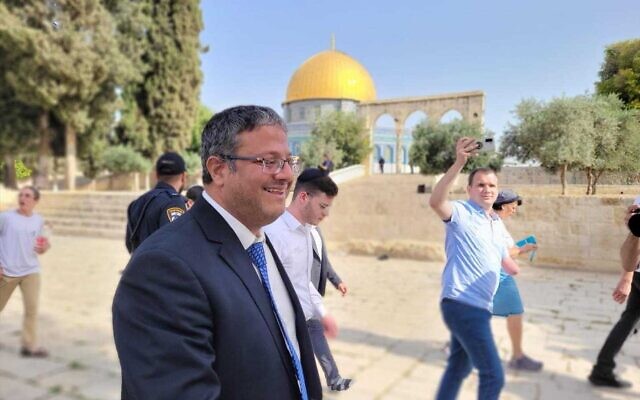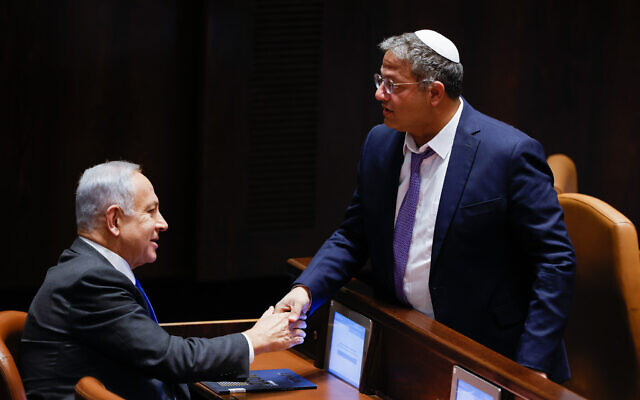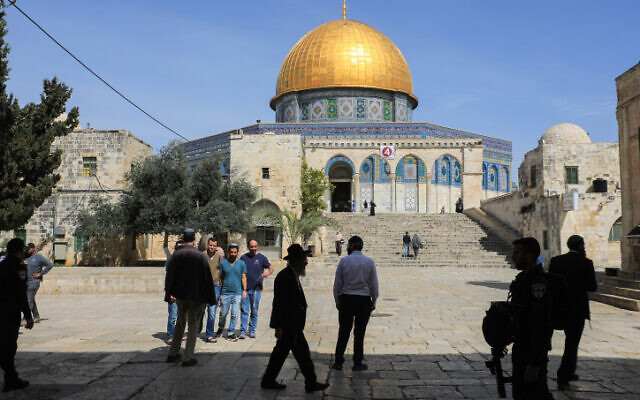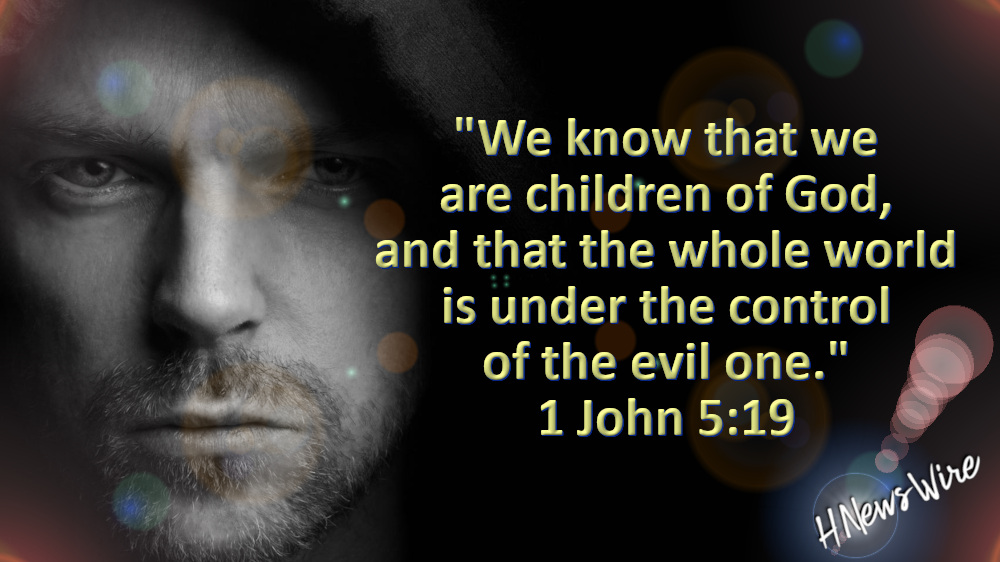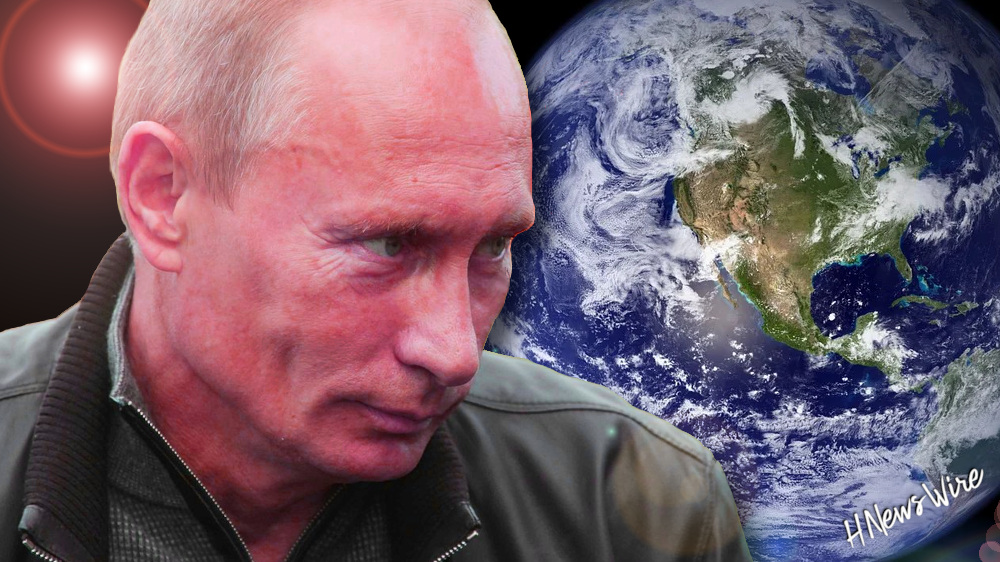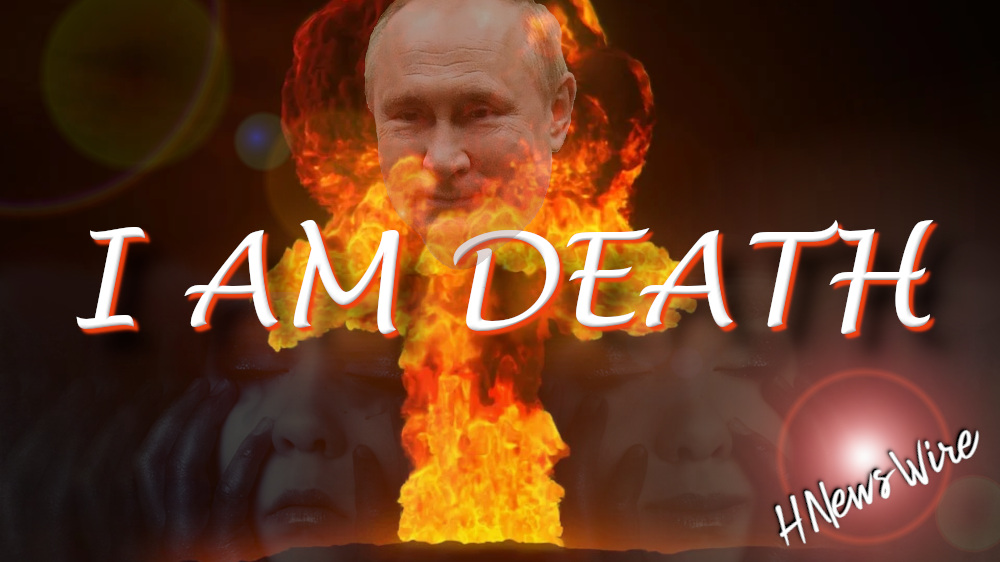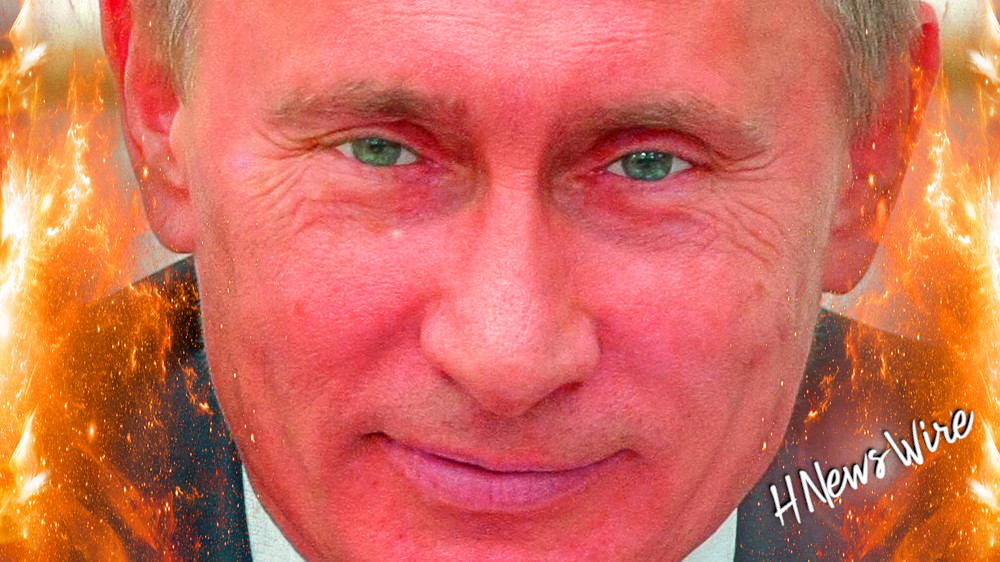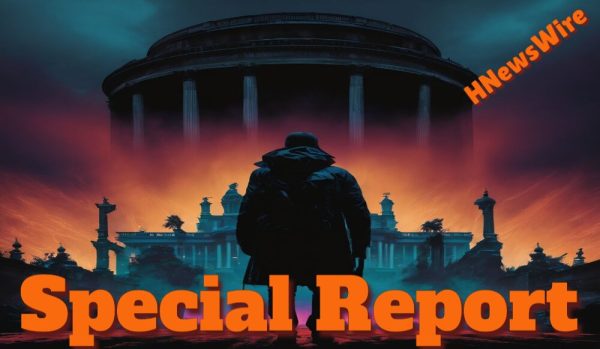Watchman: The Temple Mound Will Be a Sign of Armageddon and the End of the Tribulations. God Almighty Will Be In Charge; No More Wicked Men Will Dictate Humanity’s Future


Things To Come: It has been 7 years on 17th/1/2023 since 'the little horn[son]' -the Bibi[baby] son whose name /number adds to 666 renewed the Mosaic Covenant with Pope Francis in the Synagogue in Rome. ...7 year Biblical cycle....I believe we now might enter the Last Week- watch for his 'covenant with the many' acceptance speech?[42 month authority left]. ....building the New Temple...then the Last Two Prophets come a measuring ?...Merry Christmas & New Year,,,,Maranatha Shalom....old Messianic Jew. A Friend Of HNW.
![]()
HNewsWire: National security minister says ‘government will not surrender to Hamas’ after terror group warned against his visit; Likud denies Netanyahu asked far-right leader to postpone
National Security Minister Itamar Ben Gvir visited the Temple Mount early on Tuesday morning, his first trip to the holy site since taking up his ministerial post last week.
The visit came hours after reports that Ben Gvir had agreed to put off the visit following a meeting with Prime Minister Benjamin Netanyahu, and despite condemnation from the opposition and threats from the Gaza-ruling Hamas terror group.
“There won’t be racial discrimination in a government in which I am a member,” Ben Gvir said in the course of the visit. “Jews will ascend to the Temple Mount.”
“Our government will not surrender to threats from Hamas,” the minister added at the conclusion of his visit, which reportedly lasted some 15 minutes and passed without immediate incident.
“The Temple Mount is the most important place for the people of Israel. We maintain freedom of movement for Muslims and Christians, but Jews also go up to the site, and those who make threats must be dealt with with an iron fist,” he said.
After his meeting with Netanyahu, Ben Gvir met later Monday with Shin Bet head Ronen Bar, as well as Police Commissioner Kobi Shabtai and the Jerusalem district commander, who “determined there was no obstacle” to the visit, the statement said.
“Security officials who participated in the assessment of the situation believed that capitulating in the face of threats would be a reward for terror and legitimize actions against Israel,” the statement said.
Netanyahu on Monday discussed with Ben Gvir the latter’s stated intention to visit the site. The content of the conversation was not made public. A statement issued by Ben Gvir’s office after their talks had said he would visit the Temple Mount “in the upcoming weeks.”
Hebrew media reports indicated that the two had agreed that Ben Gvir would hold off on visiting the flashpoint site for the time being. However, Likud insisted this was not the case. Rather, it said, after discussions with security officials, Netanyahu avoided recommending to the far-right minister that he refrain from visiting.
The Palestinian Authority’s Foreign Ministry on Tuesday condemned the visit, calling it an “unprecedented provocation.”
“Netanyahu bears responsibility for this attack on Al-Aqsa,” the PA said in a statement.
Provocations and violence at the site have frequently turned into wider conflagrations.
Ben Gvir’s Tuesday visit was held on the 10th of Tevet, a Jewish fast day mourning the events that led to the destruction of the Temple.
Labor MK Gilad Kariv said Ben Gvir’s decision showed he was prioritizing the “promotion of an extreme nationalistic worldview” over Israeli citizens’s safety.
“Particularly on the fast day of the 10th of Tevet, it is important to remember that the connection between political extremism, intoxication from power and government corruption led to the destruction of the Temple,” Kariv said in a statement. “Standing up against these phenomena is essential to guaranteeing the future of Israel.”
Ben Gvir, who has been to the Temple Mount on numerous occasions in the past, had announced on Sunday his intention to visit the site for the first time as a minister.
In response, Hamas had warned Israel that Ben Gvir’s visit to the Temple Mount would be “a detonator” and vowed resistance.
The Haaretz daily reported Monday that diplomats from several unnamed Arab states reached out to Jerusalem to express their concern over Ben Gvir’s planned visit, saying such steps could lead to a deterioration of the security situation in Jerusalem, the West Bank, and the broader region.
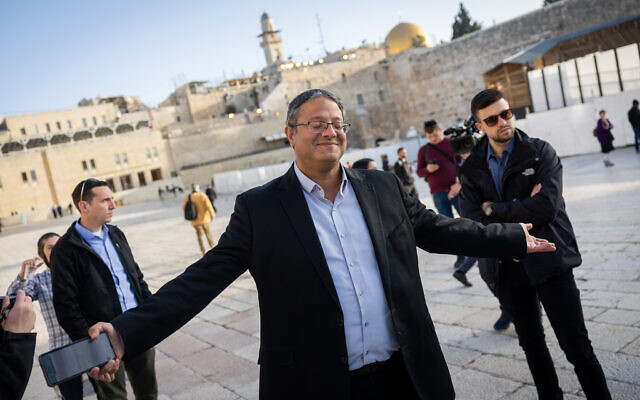
They noted that Passover and Ramadan will again fall at the same time this year and that “extreme statements and actions by senior officials of the new government, along with the sense of desperation on the Palestinian side, may take their toll,” a source familiar with the matter told the newspaper.
Ben Gvir’s announcement of his intended visit was criticized by the opposition, with opposition leader Yair Lapid warning that such a visit would “cost lives” and urging Netanyahu to prevent the visit.
Ben Gvir is head of one of the three far-right parties in Netanyahu’s nascent coalition.
The newly minted national security minister, who has long been accused of being a provocateur, made several trips to the Temple Mount as an activist and Knesset member and has also led contentious nationalist marches through the Muslim Quarter in Jerusalem’s Old City. On several occasions, he set up an ad hoc office in East Jerusalem’s Sheikh Jarrah neighborhood, which has also been at the center of Israeli-Palestinian tensions, kindling unrest.
His last visit to the Temple Mount was about three months ago, ahead of the Jewish New Year of Rosh Hashanah.
Despite Ben Gvir’s rhetoric on the issue ahead of the elections, he agreed to maintain the status quo at holy sites, including the Temple Mount, in coalition agreements reached with Netanyahu before the government was sworn in.
Ben Gvir has long been an advocate of formally altering the Temple Mount status quo, in which Muslims are allowed to pray and enter with few restrictions, and Jews can visit only during limited time slots via a single gate and walk on a predetermined route, closely accompanied by police. Jews are not allowed to pray at the site, though recent years have increasingly seen police allow some silent prayer.
Palestinians and most of the international community vehemently reject any changes to the current situation, although most Palestinians also object to any Israeli Jewish presence at the site, including of police officers tasked with preserving security.
Netanyahu has sought to assure Israel’s allies that he will not allow any changes, and he had a clause included in all of his coalition deals stipulating that the status quo “with regard to the holy places” will be preserved.
However, critics point to what they say has been the gradual erosion of the policy, with Jewish pilgrims often seen praying quietly at the site in recent years as Israeli police look on.
![]()
SRH: The BRICS coalition, which includes Brazil, Russia, India, China, and South Africa, focuses mostly on trade discussions, while it has also reached agreements on security issues such as counterterrorism. Despite increased tensions between members over the last decade, particularly between India and China, whose military fought in conflict over their shared border in 2020, the coalition has held.
The BRICS alliance also held despite the election of a self-proclaimed conservative president, Jair Bolsonaro, who radically shifted the focus of domestic politics from what it was when far-left socialist President Luiz Inácio Lula da Silva helped create the coalition in 2009. Despite campaigning on anti-communism in 2018, Bolsonaro has generally maintained close connections with China and has remained neutral in Russia's invasion of Ukraine, strongly opposing sanctions against Moscow.
On November 13, 2019, Chinese President Xi Jinping (L) and Brazilian President Jair Bolsonaro shake hands during a press conference following their bilateral meeting at Itamaraty Palace in Brasilia, Brazil. - On the eve of a summit with their BRICS counterparts from Russia, India, and South Africa, Brazil's President Jair Bolsonaro walked a diplomatic tightrope, seeking to strengthen ties with Beijing while not upsetting major friend Donald Trump.
On November 13, 2019, Chinese President Xi Jinping (L) and Brazilian President Jair Bolsonaro shake hands during a press conference following their bilateral meeting at Itamaraty Palace in Brasilia, Brazil.
Saudi Arabia's interest in joining BRICS is not surprising; reports in July suggested that Saudi officials were considering the possibility; however, Riyadh actively seeking closer ties with nations such as Russia and China will likely worry the White House, given the OPEC+ oil cartel's announcement to cut production by two million barrels per day.
The government of leftist American President Joe Biden instantly condemned Saudi Arabia, the cartel's leader, for boosting oil prices to facilitate Russia's invasion of Ukraine, a claim Saudi Arabia adamantly disputed, backed up by Ukrainian President Volodymyr Zelensky.
![]()

Sources: timesofisrael HNewsWire
Will Putin Fulfill Biblical Prophecy and Attack Israel?
Latest News Articles


